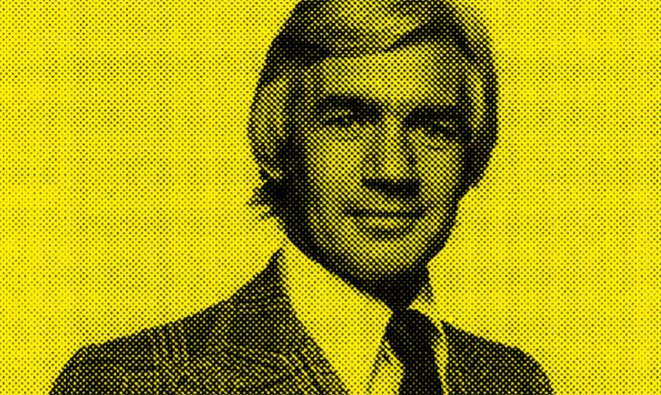For someone who has won five Ivor Novellos, three ASCAP awards, a Gold Badge Award, an MBE and Eurovision, it’s somewhat remarkable that 79-year-old Bill Martin still feels he has more to achieve.
He’d like to end his career with a hit musical – after having a musical called Jukebox in 1985, which coined the phrase “jukebox musical” now used in popular culture to describe the likes of We Will Rock You, Jersey Boys and Mamma Mia.
Or he’d quite like to write a James Bond theme – if he was allowed to heed the advice of his pal Don Black and enlist Shirley Bassey to sing it. And right now he’d really quite like Celine Dion’s people to hurry up and make a decision on a song he has on hold with her for the last six months, which he says is “probably the best song [he has] ever written”.
Music in the blood
Spend any amount of time with Bill Martin and you will soon realise that you are speaking with someone who will never stop talking about music or writing songs – it’s in his blood. His drive is no doubt in part due to his Scottish work ethic developed growing up in Glasgow, where he started out working in the Govan shipyards.
It’s also probably also due to having realised early on in his songwriting partnership with Phil Coulter that you had to be prolific to be successful. At their height, the pair would write seven songs a day.
“We used to work very hard. You’ve got to write a lot of rubbish before you get that gem,” Bill laughs.
“Songwriting is a series of disappointments because you write something and then nothing happens.”
It was a lesson he learnt at the very start. He scored his first publishing deal in Tin Pan Alley in 1963 for Kiss Me Now, performed by Brian Epstein’s “only failure” Tommy Quickly, which tanked after being released on the day JFK was assassinated. The only upside was that, by now, Bill was in the thick of a music landscape that was rapidly changing.
Musical evolution
“It all evolved,” Bill explains. “I believe it kicked off with Al Jolson, it then went to Bing Crosby, went to Sinatra, went to The Beatles. You could say Elvis – Elvis changed music but The Beatles changed the world. That made everybody become a songwriter, but not everybody was necessarily good at it.
“The key was having the ability to still keep coming up with it. And we could edit each other. Phil could write something and I could say that’s a load of rubbish, why don’t we change it? That’s teamwork.” It was that brutal honesty, for instance, which led to a song called I Think I Love You being renamed Congratulations – the duo’s Eurovision follow-up to their winning Puppet On A String sung by Sandie Shaw.
Although his candour, he admits, has led to the odd mistake – he once turned down signing Abba’s Waterloo simply because he witnessed the conductor walking out on the Eurovision dress rehearsal stage dressed as Napoleon and he thought it some kind of joke. In his words today, it was a “slight mistake!” There were numerous highlights of Bill and Phil’s decade-long collaboration. One would be writing Elvis’s My Boy.
“Elvis loved that song! It was his last number one song before he died,” Bill laments. Another would be, in his words, “inventing the biggest boy band of them all” – the Bay City Rollers – and writing a slew of hits including Shang-A-Lang. “I always wanted a Scottish band. They weren’t the greatest singers, but there was a magic to them. The Tartan took over the world,” Bill recollects.
He credits A&R man Clive Davis for “thinking like a cheerleader” and insisting the duo’s song Saturday Night propel the band to mega stardom (and mega sales, all 138 million of them) worldwide. And he blames the group’s demise on them ditching the songwriting pair – the band wrongly believing they could write their own songs. “Where are they now?” Bill puts it. When you look at his extensive catalogue, most surprising perhaps is Bill’s choice for his favourite song of all time: Back Home, performed by the 1970 England World Cup Squad.
“Can you imagine me walking around with Bobby Moore, Geoff Hurst and Alan Ball? It was fantastic. I promised them a gold record, number one in the charts and Top of the Pops and I did it, and it was my finest moment. It’s my favourite memory. I should have got an Ivor for that, it’s ridiculous! It’s the best novelty song of them all!” As with many of his stories of how he writes tunes, Bill breaks into song when he explains: “It’s a war song, ‘Back home, they will be thinking about us, when we are far away’.”
Crafting a tune
It stems from how he learnt how to write songs in the first place. Growing up in Glasgow, every morning his father played piano when he woke up – classics by the likes of Al Jolson, Bing Crosby and Frank Sinatra. By the age of 10 he says he knew he wanted to be a songwriter, but he credits his blind grandmother, who taught piano, with teaching him how to craft a tune.
He explains: “My grandmother told me don’t try and write things down. The trick was – and Lennon did it as well – you write a melody in your head and everything else, and if you can’t remember it the next day, nobody else will remember it, and that’s the trick.” Unusually, he insists, it doesn’t start with a lyric or melody but: “I usually start with a title. The melody comes.” And, he says, “a phenomenal intro” also helps – like with Congratulations or Puppet On A String. “You’ve got to catch them right away with that interest”.
Chatting about modern artists, while there is many he admires, “It’s hard to find a Dylan. Ed Sheeran is the nearest thing to that”. One problem he sees is that “they all want to do their own songs. They get a big hit and they make an album and there isn’t enough on the album that is good enough, it’s as simple as that,” he insists.
But he knows exactly what he would do if he was starting out now. He advises: “If I was young, I would try and find a young band or singer, latch onto them and hang about with them, and keep writing. That’s what you’ve got to do. Nobody is going to come knocking on your door.” Anyone starting out now would also probably benefit from reading his thrilling autobiography, Congratulations: Songwriter to the Stars – a quite unique tale of one man’s extraordinary life in music. It was Number One on Amazon at Christmas – and both Sir Michael Parkinson and BBC Radio Two’s Chris Evans described it as ‘THE’ music business book of the year.
Why Bill Martin became a publisher – and believes in BASCA
When Bill Martin and Phil Coulter signed their first publishing deals in 1963 they got a flat rate £30 a week – and no royalties. He explains that the publishers they met in and around the 1960s music hub of Denmark Street’s Tin Pan Alley, he soon realised, were taking the lion’s share of the cash through complicated sub-publishing deals where “by the time it came back, you had a penny”.
“They were all thieves and rogues in my opinion… they were unbelievable, but charming, but it was astonishing how they controlled the royalties. I realised this was not right,” Bill explains. “The Beatles only made £800 from (second single) Please, Please Me, did you know that? It was all dissipated. It was the cleverest operation you have ever seen.” Bill soon realised the money was in holding onto the copyright so he – with “visions of grandeur” – persuaded Phil to leave with him and set up their own publishing company.
Over the next decade they signed other songwriters as they continued to churn out the hits. These included hits by the likes of Van Morrison, Christy Moore, Donal Lunny, Eric Bogle, Sky, The Dubliners, Midge Ure and B.A. Robertson. They even had East Memphis Music for Europe, which included (Sittin’ On) The Dock Of The Bay and, somewhat bizarrely, comedian Billy Connolly, who he had known growing up in Glasgow (cannily not as a songwriter, but by simply turning his comedy into records they produced).
And he’s rightly proud of the fairer deals he was able to offer them all – in a climate that wasn’t exactly in favour of the songwriter at the time. “A great thing is BASCA have helped a lot. Because they have given the presence to get the contracts better even for little guys that never had a chance. Now they can’t really extort everything out of it – they try, but they won’t do it now. Lifetime of copyright and all that, they can’t do it now, and that’s down to BASCA.
“You had to have an organisation that would fight for you. Some young guy might see this and he has to get advice. And you have got to get the contract. You don’t have to spend a fortune. And that’s why BASCA has been very good, because you give (people) help.
“It was like a treasure chest, the music business. We’ve not resolved it 100%. But it’s become harder for the people to steal. That’s what the word is, steal from the royalties, that’s what they do.”
Article first featured in The Works [2018]





